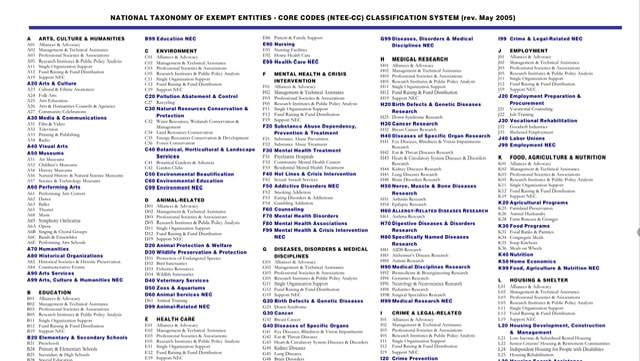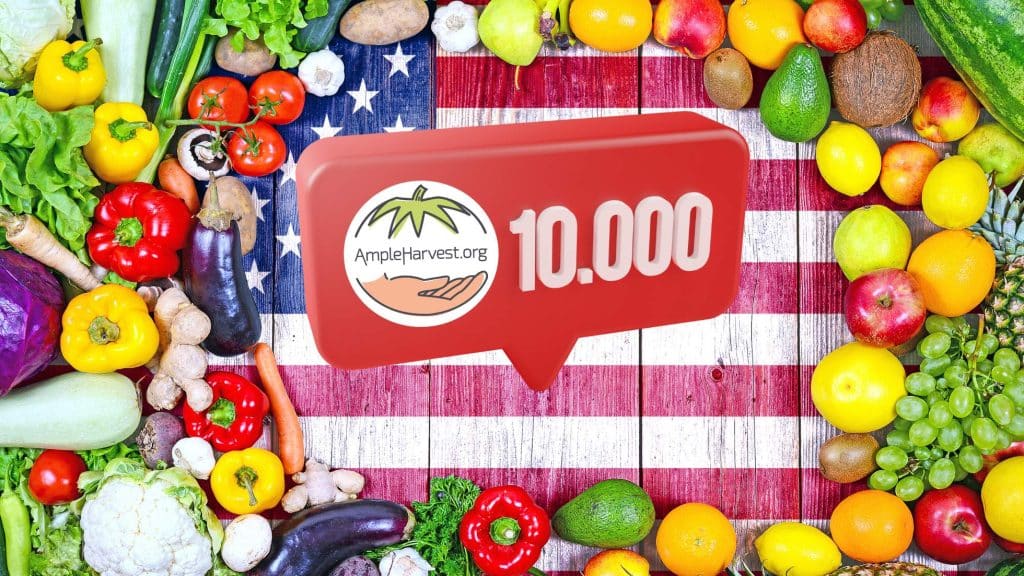Imagine for a moment that you want to go to college to study ancient Greek history, but college catalogs only listed “world history” as a major, or that you wanted to buy tomato seeds but the seed catalog only offered “vegetable seeds” (ignoring the fact that tomatoes, except in the eyes of the Supreme Court, are actually fruit).
This means that your application to college may, or may not be a fit because your interest is close to but not the same as the college’s program, or that your seeds may or may not include the tomatoes you want. The ultimate result is a lot of wasted time and money. And frustration.
In the nonprofit space, a similar issue exists. Nonprofits like AmpleHarvest.org that are working hard to end the waste of food suffer along with other relatively recent issues such as climate change, gun control and child trafficking because the NTEE or National Taxonomy of Exempt Entities codes used by many foundations to identify their funding focus are not kept current. The result is a chokepoint in funding for these newer issues because they are not accurately categorized in the philanthropic world.
Want to take a stand against child trafficking? Your code can be victim services, (P62), ethnic/immigrant services (P84) or civil rights for a specific group (R20).
Want to promote gun control? You can be alliance/advocacy (R01) or alliance/advocacy (S01). That’s a big help.
Want to help assure that we use the food we already have? There is meals on wheels (K36), food service/free food distribution (K30), emergency assistance (food, clothing, cash) (P60), food banks/food pantries (K31), congregate meals (K34) and soup kitchens (K35) which all have their codes. But for food waste – nothing.
Ending food waste is not about providing food to hungry families although it that is often the ultimate outcome. Rather, it’s about plugging the gaping holes in our food supply – that excess food in home and community gardens can get to thousands of local food pantries, that restaurants work to reduce excessive portion sizes, that unharvested farm food gets gleaned, that expiration dates on food do not actually encourage people to prematurely dispose of perfectly edible food, etc.
Grouping food waste programs with feeding programs is akin to grouping health clubs with hospitals. One can help prevent heart attacks and the other helps survive and recover from heart attacks, but they are not the same.
The major update of NTEE codes was in May 2005. with only minor updates since. In a world of new issues and problems, categorizing nonprofits with decades old thinking undercuts their ability to clearly define their work and impact. It also makes it all the more difficult for them to reach out to the foundations that would best help them. It is certainly food waste programs, as they work to assure that the programs that do feed people have the food needed to do it. In short, it makes much of the nonprofit-philanthropic space less efficient than it could be.
Until and unless the NTEE codes are kept current with problems and solutions we are facing today, those working to solve them will be needlessly handicapped because they don’t have the right code.



